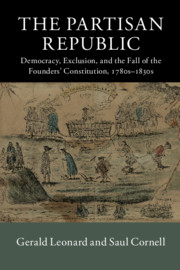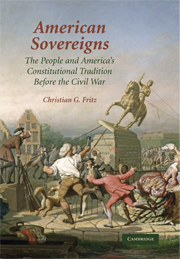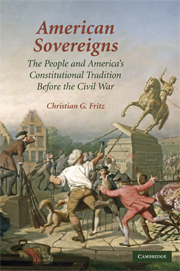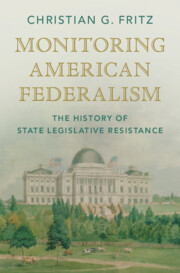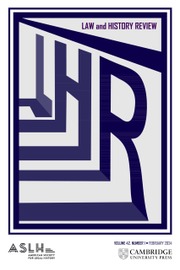The Partisan Republic
The Partisan Republic is the first book to unite a top down and bottom up account of constitutional change in the Founding era. The book focuses on the decline of the Founding generation's elitist vision of the Constitution and the rise of a more 'democratic' vision premised on the exclusion of women and non-whites. It incorporates recent scholarship on topics ranging from judicial review to popular constitutionalism to place judicial initiatives like Marbury vs Madison in a broader, socio-legal context. The book recognizes the role of constitutional outsiders as agents in shaping the law, making figures such as the Whiskey Rebels, Judith Sargent Murray, and James Forten part of a cast of characters that has traditionally been limited to white, male elites such as James Madison, Alexander Hamilton, and John Marshall. Finally, it shows how the 'democratic' political party came to supplant the Supreme Court as the nation's pre-eminent constitutional institution.
- Offers an account of early American constitutional development that recognizes the central roles of popular constitutionalism and constitutionalism outside the courts
- Incorporates the views of 'constitutional outsiders' such as property-less men, women, African Americans, and Native Americans
- Reflects the latest scholarship on judicial review, constitutional interpretation, federalism, race, class, and gender
Reviews & endorsements
'A superb, deftly written history of the unsettling transformation of an aristocratic-tinged constitutional republic to a partisan white male democracy.' Mary Sarah Bilder, Founders Professor of Law, Boston College
'The Partisan Republic tells a story of constitutional decline - from the republican vision of the Framers to an antebellum Constitution that, although more democratic, was also more aggressive in its defense of states' rights and its exclusion of all but white males from civic participation. With clarity and insight, Leonard and Cornell give us a Constitution that was from the beginning a living constitution, continually reinterpreted.' Bruce Mann, Carl F. Schipper, Jr Professor of Law, Harvard University
'A first-rate study of a crucial period as the nation struggled with the rise of political parties and democratization of American politics. Those issues remain resonant today.' Keith E. Whittington, William Nelson Cromwell Professor of Politics, Princeton University
'Leonard and Cornell have distilled and advanced understandings of what the framers intended for the US Constitution to do, and how federalists and Democratic-Republicans respectively interpreted it, even as these parties sometimes changed positions in the process. The authors also highlight how Democratic-Republicans triumphed while continuing to share some of the elitist assumptions of the original framers, and how rising democratic sentiment undermined these assumptions and thus altered constitutional understanding … This is a particularly appropriate book for history and constitutional law classes on antebellum America. Summing Up: Recommended.' J. R. Vile, Choice
Product details
January 2019Adobe eBook Reader
9781108650755
0 pages
This ISBN is for an eBook version which is distributed on our behalf by a third party.
Table of Contents
- Acknowledgments
- Introduction
- 1. The new constitution
- 2. The federalist constitution and the limits of constitutional dissent
- 3. The democracy vs the law: the role of the federal judiciary, 1789–1815
- 4. The paradoxes of Jeffersonian constitutionalism
- 5. The white democracy
- 6. The Marshall Court, the Indian nations, and the democratic ascendancy
- Conclusion: the constitutional triumph and failure of the democratic party
- Bibliographical essay
- Index.

